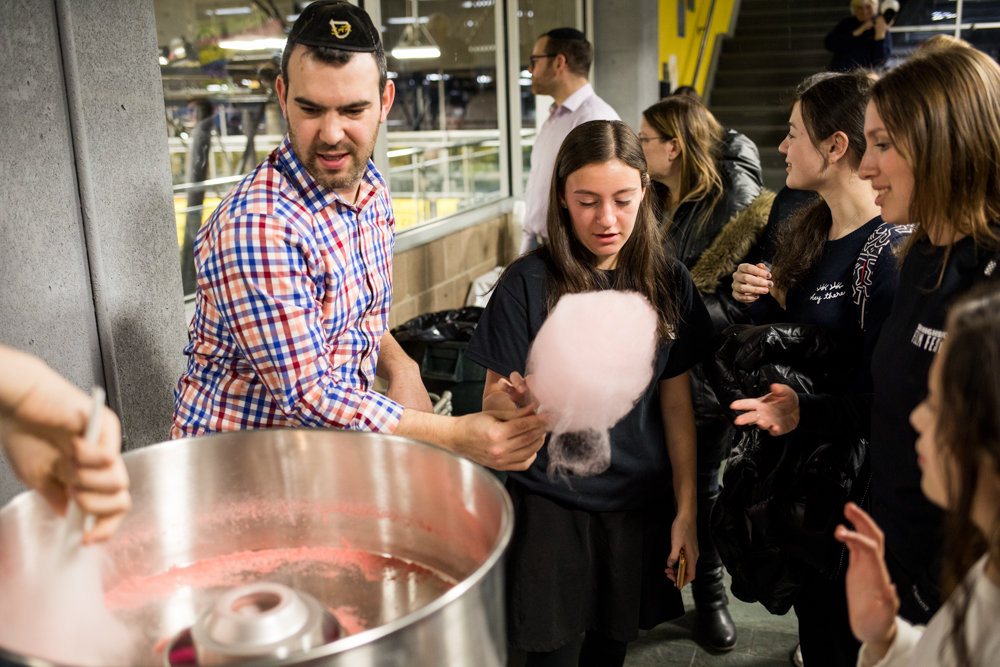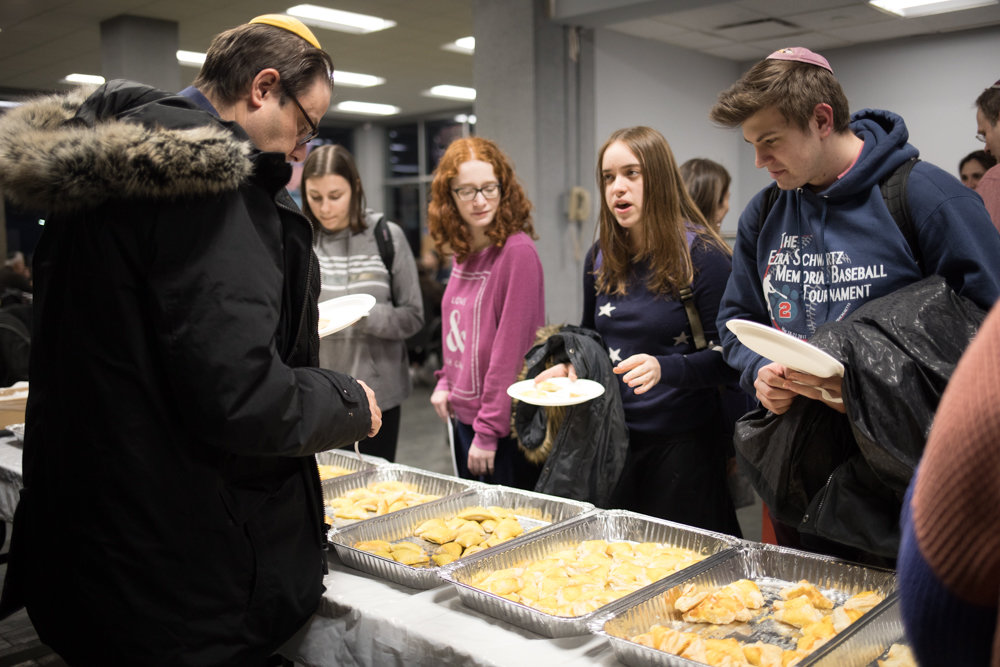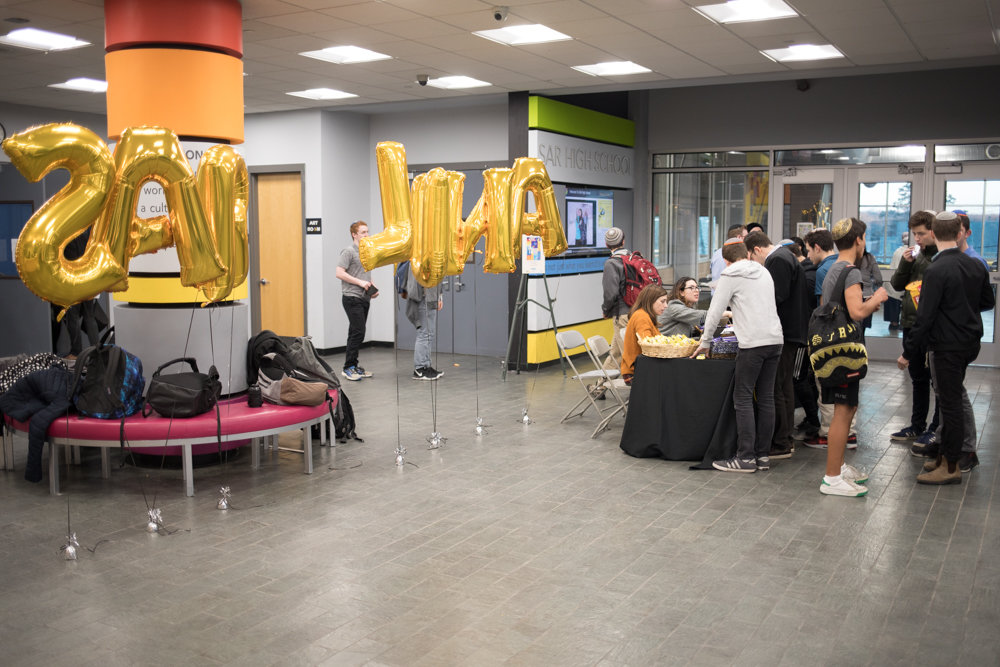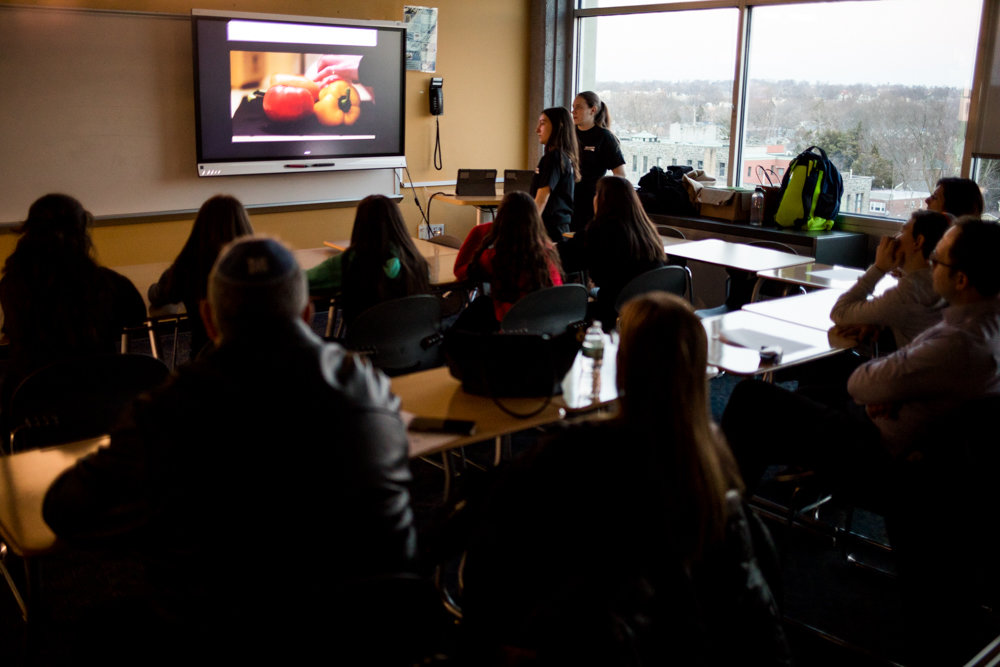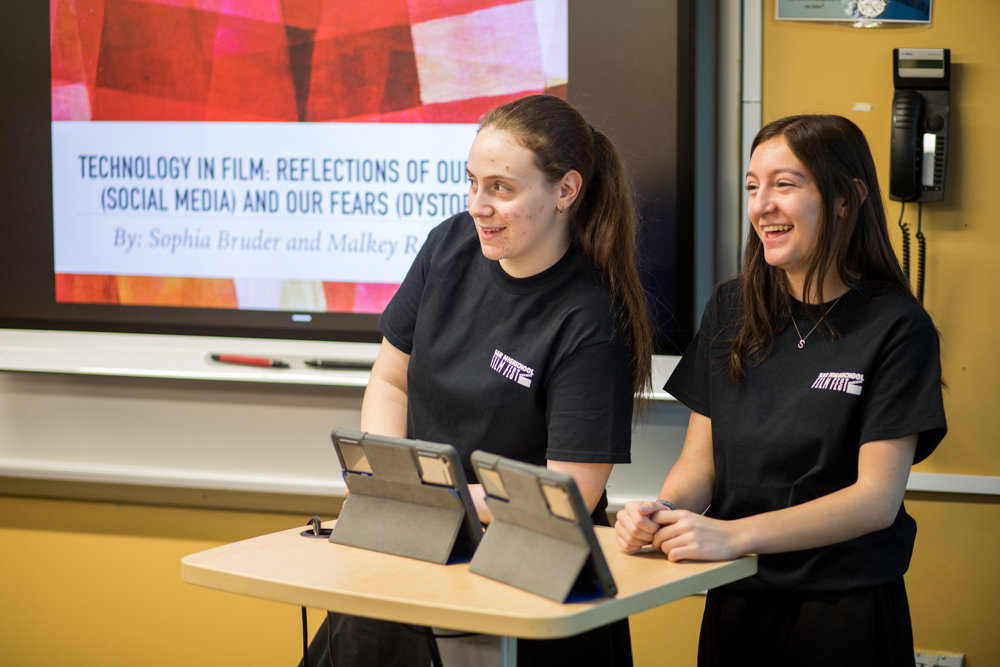Exploring women in film, from SAR and beyond
It’s like the Tribeca Film Festival meets collegiate film theory discussion. Except the snacks aren’t popcorn, but protein bars.
It was the second annual Lunafest film festival at Salanter Akiba Riverdale High School, an itinerant celebration showcasing women in film. Through Ora Meier’s class, the students explored several film shorts, focusing on current issues like technology and social media.
The films opened conversations not just with student peers, but the community. Malkey Rosensaft and Sophia Bruder were among those SAR students presenting. Their topic? The effects of social media.
“It can impact girls in what I’ve seen in bullying, and make them feel terrible about themselves solely based on a comment they saw on social media,” said Rosensaft, a senior. “So I think the impact on our lives is too extreme not to talk about and not to bring attention to.”
Rosensaft and Bruder’s project began in Meier’s literature and film course. There they developed their ideas with their classmates before searching for short films they felt best represented their ideas. They screened two films illustrating the impacts of social media and technology in exaggerated and futuristic ways.
“Trying to connect it all and put the two together was difficult because we know we wanted to do something with dystopia and social media,” Bruder said. “But we still had to find two movies that would connect, and that took a while. And we did it. But it wasn’t something that we just had.”
The first film was about a girl so addicted to social media, she lied about her life online and wouldn’t go outside. As a result, the girl’s confidence was slowly stripped away, Rosensaft explained, as well as her ability to communicate with others.
The second focused on a world where people accessed the internet through a contact lens. A woman’s mind is “hacked” by her creepy date through the technology in the lens.
“We brought in the dystopia thing because it was more of like an extreme type of thing that wouldn’t normally happen,” Bruder said. “So when we saw that, it was like that could be the future, and where technology will go or may not go.”
This raised questions about other devices that have the potential to behave in the same intrusive manner as the contacts. The crowd shouted out gadgets like E-ZPasses, iPhones, red light cameras, and even global positioning system trackers.
In the girls’ search for films they sought out work that was similar to Netflix’s anthology series, “Black Mirror.” They looked for films that would give their audience the same uneasiness as “The Twilight Zone,” evoking questions about a not-so-distant future. In the same way the students were challenging their audiences to think, Meier did the same in her class.
“I was looking for a way to show multiple perspectives,” the teacher said. “I think sometimes you see a movie and you’re like, ‘Oh, there’s one central story,’ but in this case, there are so many competing points of view.”
The students were given the chance to take their discussions and film analysis a step further in a panel with other students. One of the most rewarding parts for Meier was seeing students who didn’t usually participate willing to discuss their thoughts in front of their peers.
“They reflect on what spoke to them, and I like having different voices,” Meier said.
With the “Time’s Up” movement on the rise and actresses pledging to be part of projects that hire women on and off the screen, students like Rosensaft see the potential in their own careers. However, becoming a filmmaker still leaves Rosensaft driven, but still apprehensive.
“I love film and I really want to go into it,” Rosensaft said. “One of the reasons I find Lunafest so amazing is because it’s such a tough film industry for women to break into. It’s tough and something that I have to think long and hard about, and really have to strive for.”
As a movie buff and Oscar award show viewer, Rosensaft recognizes the importance of diversity in film in regards to both race and gender. She also recognizes the power and position film can have in the lives of others. For the 17-year-old, her project with Bruder is only the beginning.
“I think showing everyone our work that we put in and then having the feedback and discussions really showed that our work paid off,” Rosensaft said. “And even if they’re not responding to the questions, they’re still thinking about it. And the way it impacts them. Maybe they’ll think about being a little more careful in their own lives.”

